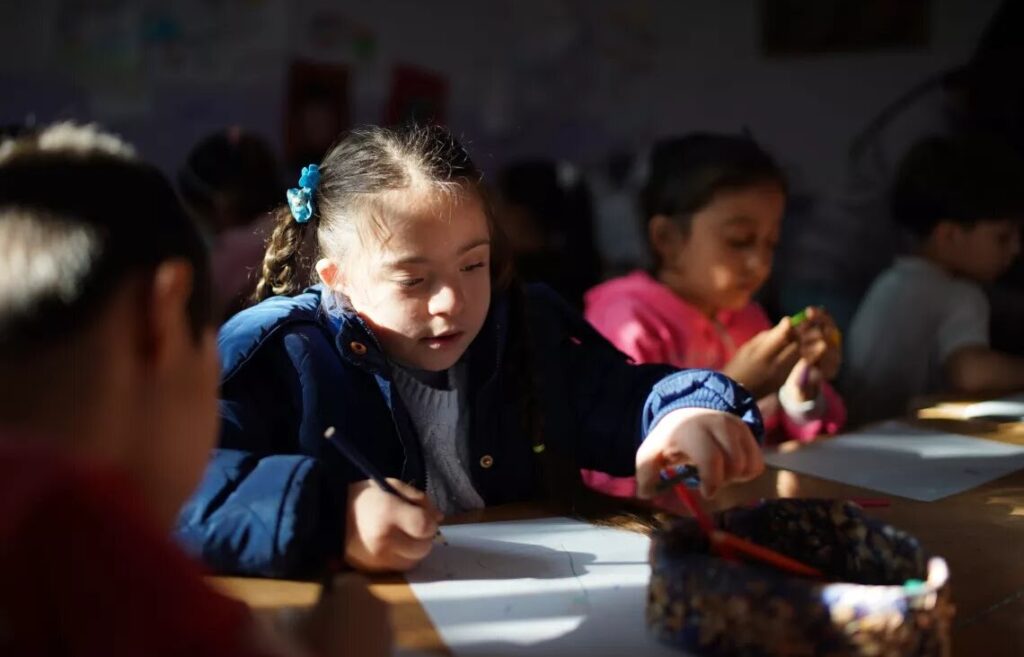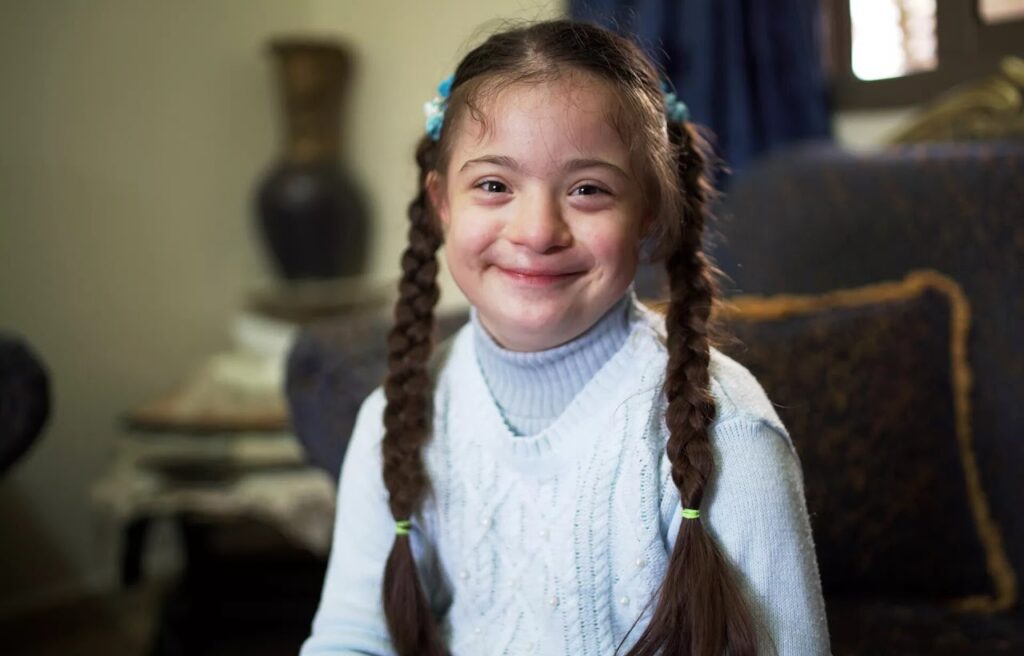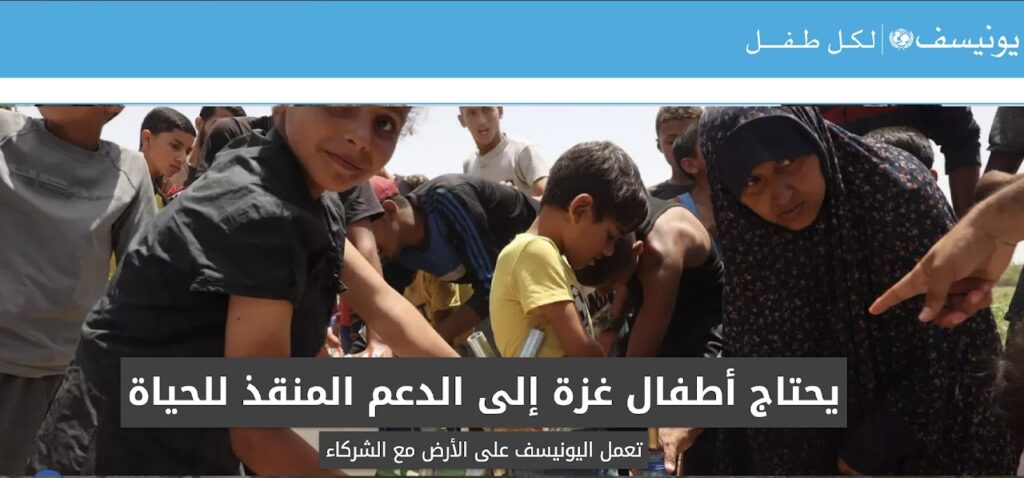With a smile that lights up the room, 10-year-old Dania Al Fares is everyone’s favourite in class at the Bourj Hammoud centre of the Mouvement Social. As noisy and energetic as her friends around her, Dania’s story is one markedly different from those of her classmates. From Syria and now a refugee in Lebanon, Dania was born with Down Syndrome.

Dania’s elderly father, Khaled, brought his family to Lebanon after his home and business were both destroyed during a single night of violent destruction. Throughout much of her short life, he has home-schooled Dania – working hard to ensure she was receiving constant educational stimulation despite a lack of support in Syria. “However,” he says, “I always knew she would be forever disadvantaged if we didn’t get her enrolled in a proper education programme”.

Dania’s elderly father, Khaled, brought his family to Lebanon after his home and business were both destroyed during a single night of violent destruction. Throughout much of her short life, he has home-schooled Dania – working hard to ensure she was receiving constant educational stimulation despite a lack of support in Syria. “However,” he says, “I always knew she would be forever disadvantaged if we didn’t get her enrolled in a proper education programme”.

Perhaps the biggest influence on his daughter’s days at school is her teacher, Heba. They spend a lot of time together, Dania following her to other classes she shouldn’t strictly be attending. But no one minds… Dania finds a welcome everywhere she goes.
“At first,” Heba recalls, “Dania was introverted, very shy. She wouldn’t talk to anyone and would barely even look at anyone. During those early weeks we took things very slowly”.
“Inclusion for all my pupils is important, but it is especially vital for children such as Dania. Being at school and involved in everything is important for her, but it’s also very beneficial to my other pupils. They’ve learned to see Dania as just another classmate. Someone else to look out for, someone else to take care of. Over time they’ve come to value Dania for what she brings to the life of classroom, not to judge her for what she cannot do”.
One of Dania’s favourite games is playing at being a doctor. “She talks about being a doctor one day”, her father notes whilst shaking his head. “I’m sure she will help people during her life, and thanks to her experiences in education she’s learning to be comfortable around people. I have only one worry for her, and that’s when I’m no longer around. When I’m not able to look after her I pray that she will have the confidence to continue, and that society will be open enough to accept her and others like her. Today, through the UNICEF initiative that has helped bring Dania to Mouvement Social, I have confidence that we’re heading in the right direction”.
Non-formal education is a pathway to formal school. Children like Dania can be included in regular classrooms if teachers and school staff are trained and additional support is provided. Inclusive education benefits not only children with disabilities but also other children through methods like differentiated instruction. Inclusive education helps children become more welcoming, and respecting diversity in general. It helps to reduce violence and discrimination.
Source of the story: UNICEF
